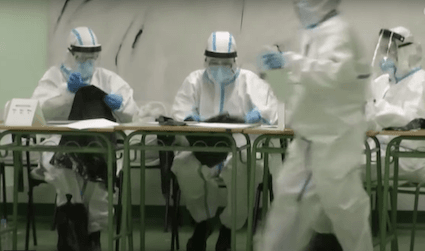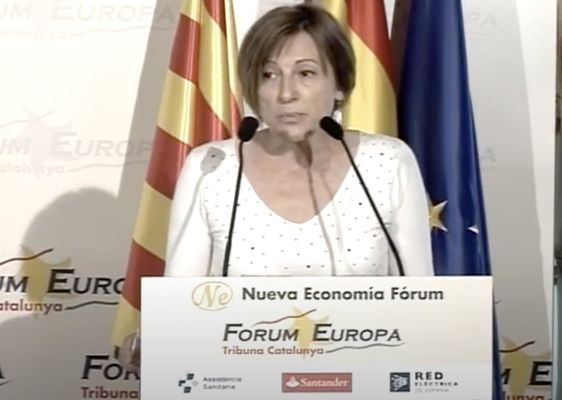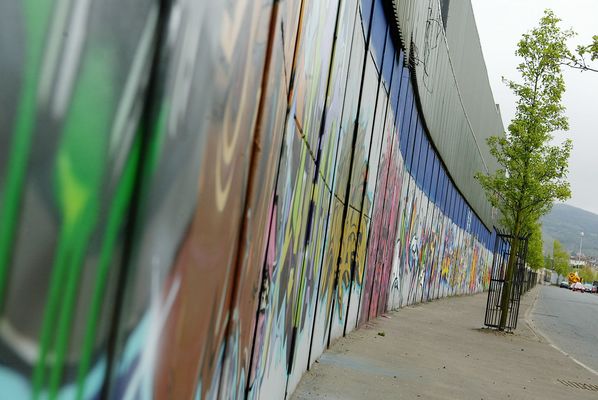Nine parties contested the Catalan regional elections this weekend, suggesting a fair degree of political fragmentation. Three were winners. The Catalan Socialist Party (PSC) had the largest share of votes, taking 23 per cent. It favours the continued union of Spain, as against pro-independence Catalans who favour secession.
Its leader, the forceful former health minister in the Madrid government, Salvador Illa, orchestrated the socialist revival and helped double the number of seats previously held by the party. As a result, he believes he should now become the next President of the Generalitat (the Catalan devolved government). The socialist prime minister in Madrid, Pedro Sanchez, sent his congratulation and has hailed the election as a victory for socialism and unity.
But that is only part of the story. The other headline is that pro-independence parties are now in a clear majority in the parliament, holding 74 of the 135 seats. The Left Republicans (Esquerra Republicana), whose origins go back before the Spanish civil war and who were a minor political force only ten years ago, secured 21 per cent of the vote. The third of the top three is Junts per Catalunya (Together for Catalonia), headed by the exiled leader, Carlos Puigdemont, at 20 per cent of the popular vote.
A coalition of the Left Republicans and Junts, and including the small Catalan anti-capitalist and eco-socialist group (CUP ) might well form the next government. The volatile CUP tend to be difficult allies at the best of times, though this may be the best of times for the pro-independence movement.
Rather like the general election in the Republic of Ireland early last year, three parties dominate the electoral landscape, hence the eventual outcome is by no means clear. Much horsetrading to form a coalition government will be necessary in the weeks that lie ahead.
That said, the likelihood is of a pro-independence government led by the Left Republicans. This is the third election in a row since 2015 in which pro-independence parties have won half or more of the seats in parliament. And for the first time they have achieved 51 per cent of the popular vote.
Despite Covid restrictions and concerns about health and other social problems, it seems that the issue of political prisoners and exiles has galvanised pro-independence supporters. Three years ago the conservative party then in power in Madrid (Partido Popular) ordered a crackdown on Catalan nationalists, following a declaration of independence.
The shocking levels of police and legal intimidation (including lengthy prison sentences) served to solidify rather than undermine support. Also critical was the disciplined, non-violent response, unlike the case of the Basque Country as evidenced during ETA’s armed campaign. In effect, Madrid turned out to be a recruiting sergeant for Catalan nationalism.
A further striking feature of the election is the rise of the extremist Spanish, anti-immigration party, Vox. It has gained a foothold in Catalan politics for the first time, winning 11 seats and displacing other contenders on the right. Historically, Catalonia has not been hospitable ground for right-wing parties, so this is of concern to both Catalans and Spanish unionists.
At the last elections to the Generalitat in December 2017 the turnout was 79 per cent. This time, for understandable reasons, the turnout was down to 53 per cent. In an interview on BBC Radio 4’s Today programme, the Spanish minister for International Affairs observed that only the socialists achieved an increased vote, with the other major parties polling fewer votes than in 2017.
This is true but the sleight of hand is obvious. But that’s politics sometimes. Still, the low turnout suggests the need for caution in interpreting the results. What we have are the voting preferences of one out of every two of the electorate. Some wonder if pro-independence voters were more energised to come out and vote as compared to voters generally.
The debate about constitutional futures goes on. The balance between pro-independence and unionist forces, to coin a phrase, still seems to be very much in the balance.







